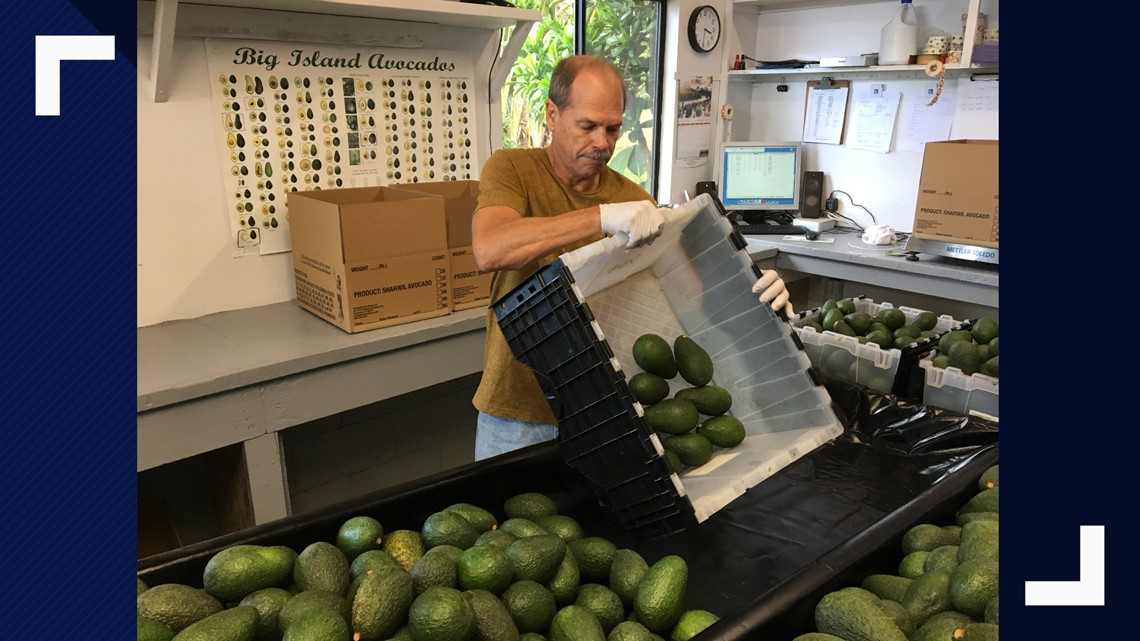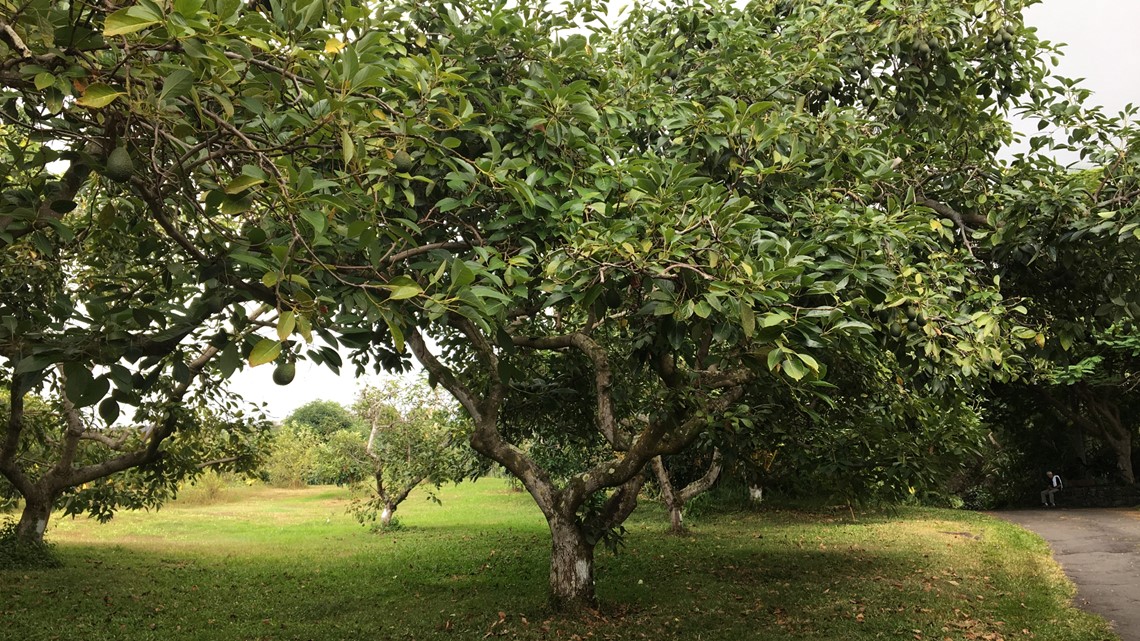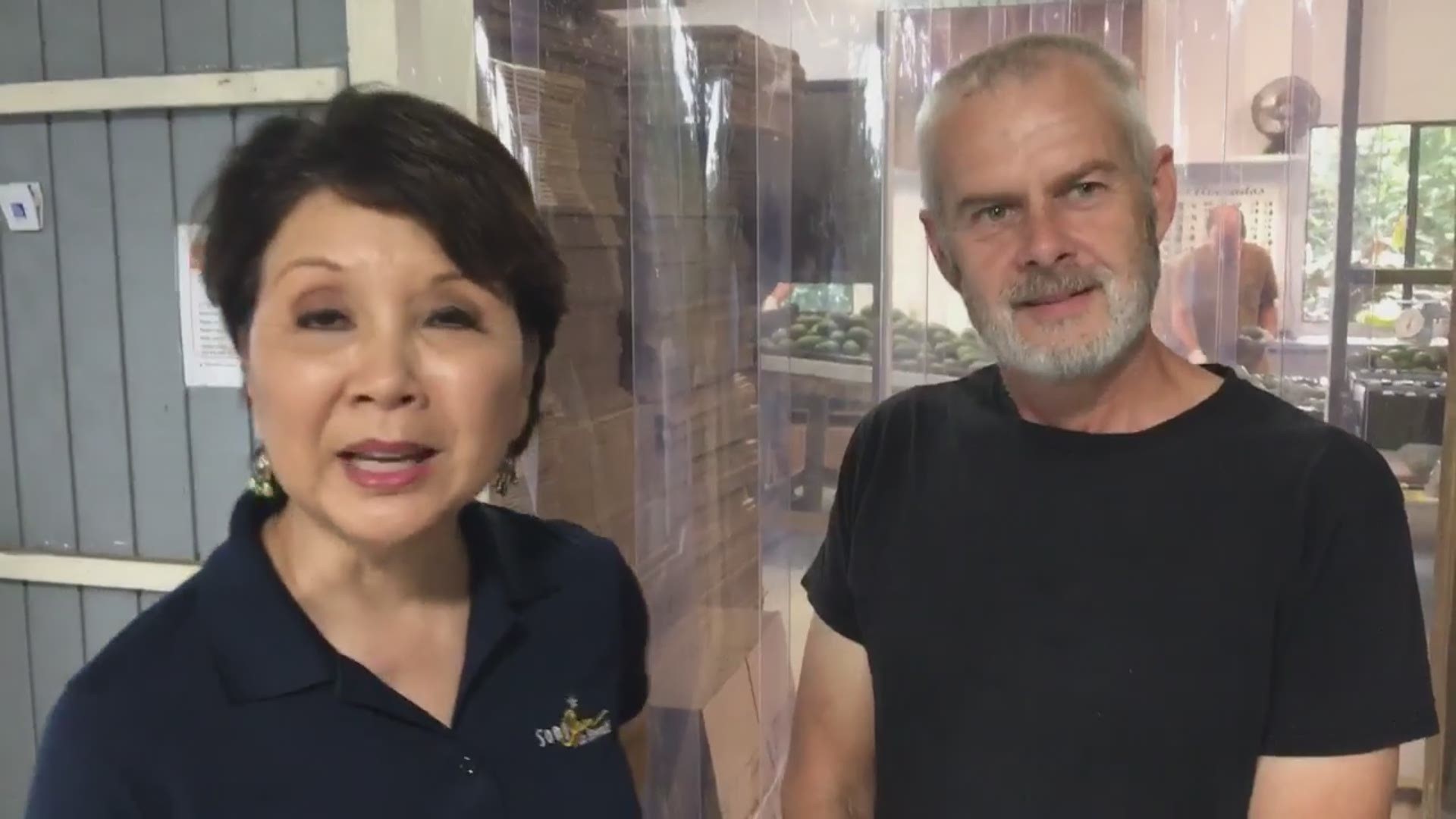Hawaiian-grown avocados are headed to the mainland for the first time in 25 years after concerns over fruit flies stopped the shipments in 1992.
Now the U.S. Department of Agriculture is allowing Hawaii to ship Sharwil avocados to Seattle from November to March. The risk of fruit flies is minimized in Washington's colder months.
Sharwil avocados, developed in Australia, have a higher meat-to-seed ratio and oil content than the Haas variety grown in California and Mexico.
The Hawaiian crops fly to Seattle on Alaska Airlines for distribution at Charlie's Produce and Pacific Coast Fruit Co.
KING 5's Lori Matsukawa toured the Kane Plantation packing house with owner David Cox, as the next batch of avocados is readied for Seattle:
Shipments of Sharwil avocados from Hawaii and their resulting profits could expand exponentially in coming years, industry officials said.
Hawaii's avocado industry opened in earnest in early December with weekly shipments of about 3,000 pounds (1,360 kilograms) of avocados to two Seattle-based wholesale produce companies, West Hawaii Today reported this week.
Shipments of that size, which nearly reach the capacity of the state's only avocado packing facility, are expected to continue through March.


"The potential is unreal," said Billy Wakefield, a board member of the Hawaii Avocado Association. "Ultimately, hundreds of acres could be sent to the mainland very easily."
The trees on each acre could potentially produce about 5,000 pounds (2,268 kilograms) of avocados each year, Wakefield said.
Hawaii avocados were first shipped to Alaska in 1987, and the fruit started get sent to the mainland U.S. without restrictions by 1989, said Mike Scharf, officer in charge for U.S. Department of Agriculture in west Hawaii.
The shipments stopped in 1992 over concerns about fruit flies spreading from Hawaii to the continental U.S.
A final rule was published in the Federal Register allowing the import of Sharwil avocados to 32 states and the District of Columbia in 2013 after years of research to develop a system reducing the risk of fruit flies.
USDA inspectors vet all Hawaii farms before certification, monitor their processes to ensure compliance and also check fruit at packing facilities before it's exported.
"They can't get enough fruit in the air to these markets," Scharf said. "It's just going to take a while for it to gear up again."
Scharf said 12 Hawaii farms have either been certified or are preparing for a USDA visit.



